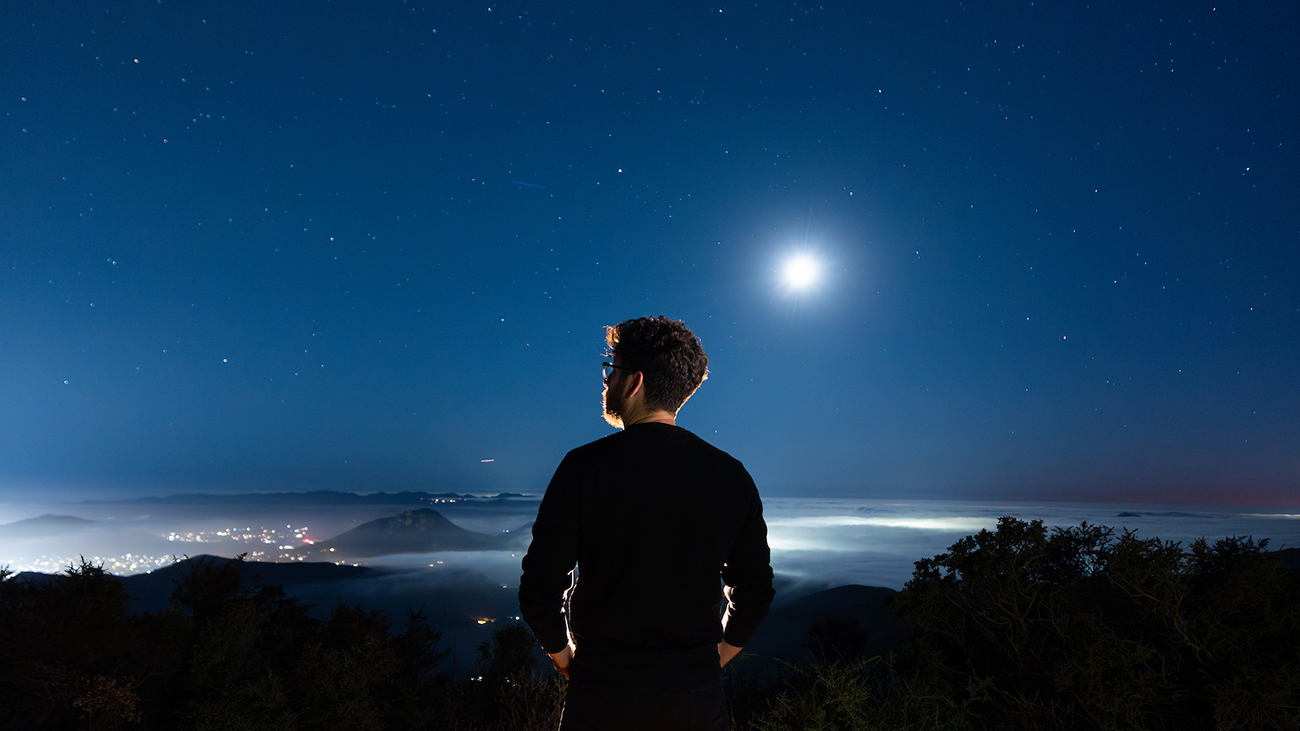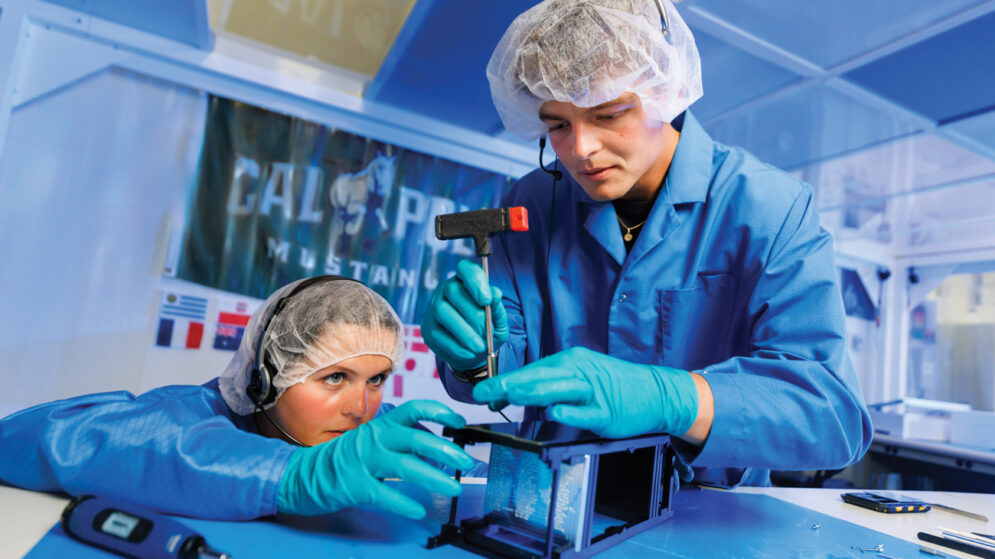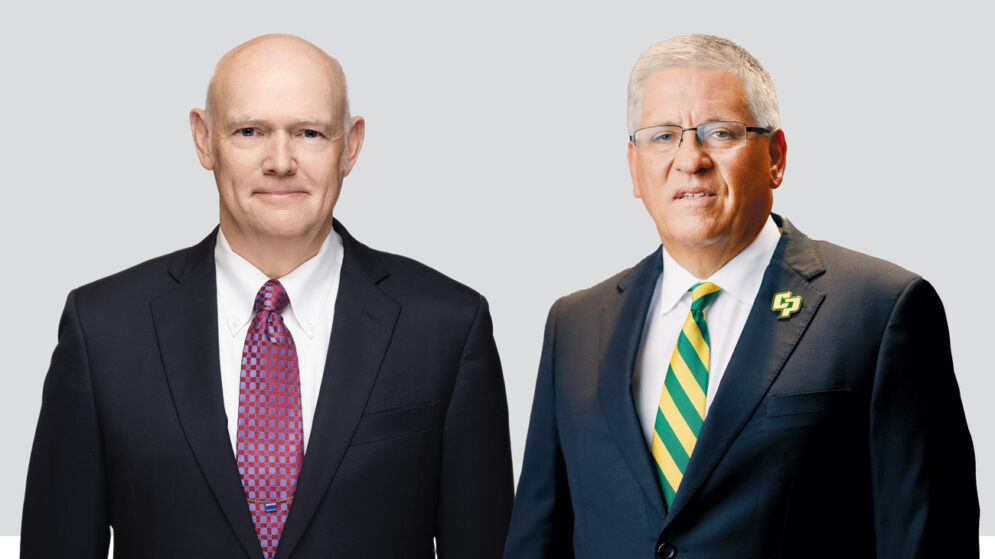Editor's Desk
A Higher Calling
Editor Larry Peña reflects on why shooting for the moon still matters.
By Larry Peña
Photo by Joe Johnston
Share this article:

Peña observes the night sky over San Luis Obispo from Cuesta Ridge.
For the past two years, Cal Poly alumnus Victor Glover has been training to do something no human has done in more than half a century. In spring 2026, he’s scheduled to pilot the Artemis II mission — the first time since 1972 that astronauts will travel to the moon.
The mission is intended to be a first step toward an eventual lunar landing and a permanent base of operations: a critical checkpoint for future crewed missions that journey even farther into the cosmos.
To celebrate this upcoming milestone in our history, we wanted to explore all the ways Mustangs have helped push humankind further along on the journey beyond our home planet. This includes undergrads making satellite orbits more accessible for everyone, faculty researching the mysterious forces that form our universe, and alumni who have lived and worked aboard the International Space Station.
But as we were planning this issue, our editorial team got into some serious discussions about whether space is even a worthwhile goal today in 2025. Space travel is dangerous. It’s incredibly expensive. It uses resources that many would argue could be better used creating sorely needed opportunities here on Earth.
And for decades, it has been systematically reduced as a national priority, even as private companies search for profits beyond our atmosphere. At this point, are we still really on track for a bright space-bound future for all?
"Perhaps now, even more than when Kennedy first aimed our efforts at the moon, we need to show ourselves that we can do difficult things for the good of all humankind."
Larry Peña
Going to space has never been one of my personal goals. But I deeply want to live in a world where humans push the limits of what’s possible to achieve greatness and learn new things.
Becoming a spacefaring species means both shining moments of genius and grueling everyday acts of dedication and diligence. It means cooperation with people from around the world. It means putting aside differences and elevating our shared humanity, both figuratively and literally.
We explore space, as President John F. Kennedy once said, because it is hard. And perhaps now, even more than when he first aimed our efforts at the moon, we need to show ourselves that we can do difficult things for the good of all humankind.
That’s the kind of thing people at Cal Poly specialize in. Our students have always been driven to work hard, chase ambitious goals and put Learn by Doing into action doing what no one has done before.
For all those reasons, this issue is dedicated to the past, present and future Mustangs who help humanity reach for the stars.
Your Next Read
Cal Poly’s CubeSat Lab broke barriers. Two decades later, students are still rewriting the story.




